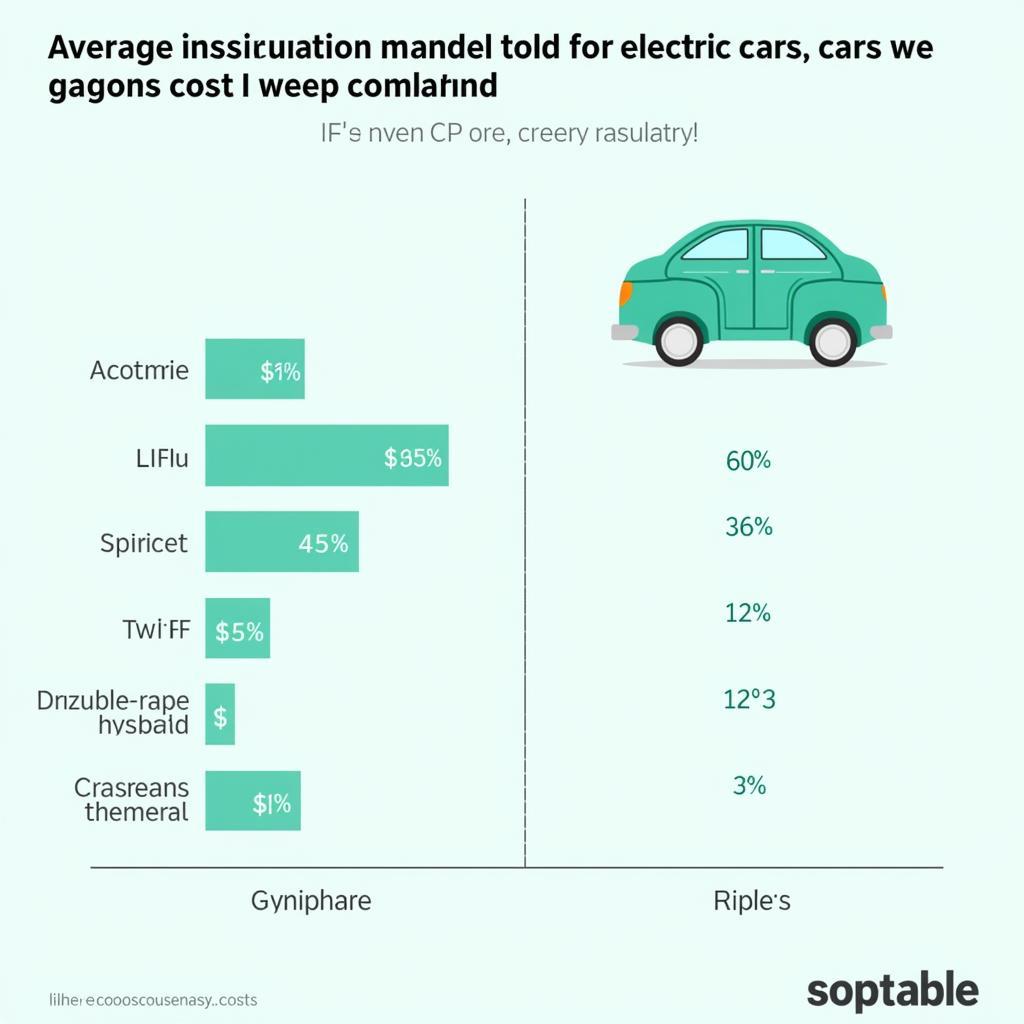Electric cars are increasingly popular, but they still face economic challenges. This article delves into the financial hurdles of EV ownership, maintenance, and the overall market, offering insights for potential buyers, mechanics, and automotive enthusiasts.
While electric vehicles promise a greener future and offer various advantages, understanding the financial implications is crucial for making informed decisions. From the initial purchase price to long-term maintenance, several economic factors can influence the overall cost of owning and operating an electric car. This can be a deterrent for some consumers and understanding these hurdles is key to wider EV adoption. Similar to what problem does electric cars solve, addressing these economic challenges is paramount for a sustainable transition to electric mobility.
The Upfront Cost: A Significant Barrier
The most immediate economic problem with electric cars is the higher purchase price compared to gasoline-powered counterparts. While government incentives and tax credits can help offset this difference, the initial investment remains a substantial hurdle for many potential buyers. Battery technology, a key component of EVs, contributes significantly to this higher cost.
Battery Life and Replacement Costs: A Looming Expense
The lifespan of an EV battery is a major concern for prospective owners. Battery degradation over time can lead to reduced range and performance. Replacing an EV battery can be a costly affair, potentially negating some of the long-term savings on fuel. While battery technology is constantly evolving, current replacement costs represent a significant economic factor.
 Electric Vehicle Battery Replacement Costs and Factors
Electric Vehicle Battery Replacement Costs and Factors
Charging Infrastructure: Accessibility and Affordability
Limited charging infrastructure presents another economic challenge. Public charging stations are not as readily available as gas stations, and installing a home charging unit can be an added expense. Furthermore, electricity prices can fluctuate significantly, impacting the cost of charging and potentially diminishing the fuel savings advantage of EVs. This uneven distribution of charging stations can also limit travel options and create “range anxiety” for drivers.
Depreciation: A Factor to Consider
Electric cars, like any other vehicle, depreciate over time. However, the rate of depreciation for EVs can be influenced by factors such as battery technology advancements and evolving government regulations. Rapid technological advancements can lead to older models becoming obsolete more quickly, impacting resale value.
 Factors Affecting Electric Vehicle Depreciation Rates
Factors Affecting Electric Vehicle Depreciation Rates
Maintenance and Repair Costs: A Mixed Bag
While EVs generally have fewer moving parts than traditional vehicles, requiring less routine maintenance, specialized repairs can be more expensive. The complexity of electric drivetrains and battery systems requires trained technicians and specialized equipment, potentially leading to higher labor costs. This contrasts with causes of car alignment problems, which are often more straightforward to diagnose and fix in traditional cars.
Insurance Costs: Another Financial Consideration
Insurance premiums for electric cars can be higher compared to similar gasoline-powered models. This is often attributed to the higher repair costs associated with EV technology and the relative newness of the market. Insurance companies are still assessing the long-term risks associated with insuring electric vehicles.
 Comparison of Insurance Premiums for Electric and Gasoline Vehicles
Comparison of Insurance Premiums for Electric and Gasoline Vehicles
Is the Future of Electric Cars Economically Sustainable?
Despite these economic challenges, the long-term prospects for electric cars remain positive. Technological advancements, increasing economies of scale, and growing government support are expected to drive down costs and improve infrastructure. Understanding these economic realities can help individuals and businesses make informed decisions about embracing electric mobility. This mirrors the trajectory of hybrid technology as discussed in what problems do hybrid cars have, where initial challenges were eventually overcome.
“The initial cost of EVs can seem daunting,” says automotive expert, Dr. Eleanor Vance, “but advancements in battery technology are rapidly decreasing these prices, making them more accessible to the average consumer.”
Conclusion
Navigating the economic landscape of electric cars requires careful consideration of both the upfront and long-term costs. While the initial investment and potential battery replacement expenses can be significant, ongoing advancements promise a more affordable and accessible future for EVs. Don’t hesitate to connect with us at AutoTipPro for further assistance. You can reach us at +1 (641) 206-8880 or visit our office at 500 N St Mary’s St, San Antonio, TX 78205, United States.
 Projected Growth and Cost Reduction in the Electric Vehicle Market
Projected Growth and Cost Reduction in the Electric Vehicle Market
“As charging infrastructure expands and battery technology matures,” adds Dr. Vance, “the total cost of ownership for electric cars will become increasingly competitive with gasoline-powered vehicles.”
Addressing concerns about potential issues, similar to those explored in car problems that can’t be fixed, is crucial for fostering consumer confidence in the EV market. Furthermore, staying informed about the latest developments, like those discussed in new problem with electric cars, is essential for making informed decisions.




Leave a Reply